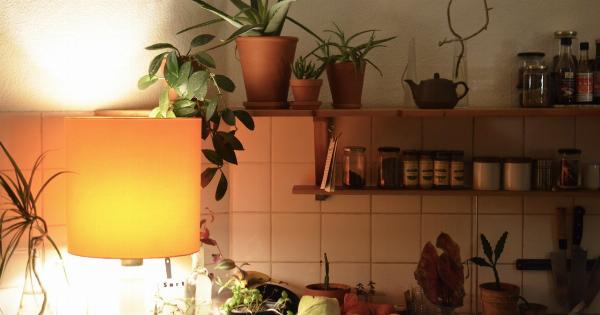Sleep is an essential part of maintaining good health. It is the time when our body rejuvenates, repairs, and regenerates. However, poor sleep quality can result in several health issues like obesity, heart diseases, depression, etc.
One way to improve your sleep quality is to bring plants into your home. Not only do plants add a touch of greenery to your home, but they also have many health benefits. Here are ten plants that can positively impact your sleep.
1. Lavender
Lavender is known for its soothing fragrance, making it one of the most popular plants for inducing sleep. The sweet scent of lavender is believed to promote relaxation and reduce stress, ultimately leading to a better night’s sleep.
Research suggests that inhaling lavender essential oil can reduce insomnia and sleep disturbances.
2. Aloe Vera
Aloe Vera is known for its air-purifying properties and is known to release oxygen at night, making it an ideal plant for your bedroom. In addition to purifying the air, aloe vera can also improve your sleep quality.
Breathing in fresh, oxygen-rich air can help you breathe more deeply and have a more peaceful sleep.
3. Snake Plant
Snake plants are one of the most popular plants for improving indoor air quality and promoting sleep. The snake plant is known for its ability to purify the air by removing toxins and releasing oxygen.
Furthermore, snake plants also produce moisture, making it easier for you to breathe while sleeping. This is especially beneficial for those who suffer from allergies or asthma.
4. Jasmine
Jasmine is a beautiful flowering plant that is native to tropical regions. The flowers of jasmine produce a sweet and soothing aroma that can promote relaxation and sleep.
Research suggests that inhaling the fragrance of jasmine can increase overall sleep quality and reduce anxiety levels.
5. Gardenia
Gardenias are known for their sweet, heavenly fragrance. The scent of gardenias is believed to promote calmness and relaxation, helping you drift off to sleep more easily.
Some studies have shown that inhaling the fragrance of gardenias can reduce stress levels and stimulate the production of relaxation hormones.
6. Peace Lily
Peace Lily is another plant that is known for its air-purifying properties. It is known to remove harmful toxins like benzene, formaldehyde, trichloroethylene, ammonia, and xylene from the air.
Clean air can help you breathe better, leading to a more relaxed and peaceful sleep.
7. Valerian
Valerian is a medicinal herb that has been used for centuries to promote sleep and relaxation. Valerian is believed to work by increasing the levels of gamma-aminobutyric acid (GABA) in the brain, which is a neurotransmitter that promotes relaxation.
Some studies suggest that valerian can improve sleep quality and reduce the time it takes to fall asleep.
8. English Ivy
English Ivy is another popular plant for improving indoor air quality and promoting better sleep. It is known for its ability to filter out harmful airborne particles such as mold and fecal matter.
By removing these toxins, English Ivy can improve air quality, leading to better breathing and a more restful sleep.
9. Gerbera Daisy
Gerbera Daisies are known for their bright and colorful flowers. They are also known for their air-purifying properties, making them an ideal plant for your bedroom.
Gerbera Daisies release oxygen at night and remove harmful toxins like benzene, trichloroethylene, and formaldehyde from the air. The presence of fresh oxygen can help you breathe better, ultimately leading to a more peaceful sleep.
10. Golden Pothos
Golden Pothos is another popular plant for improving indoor air quality. It is known to remove toxins like benzene, formaldehyde, and carbon monoxide from the air.
The removal of these toxins can improve air quality and make breathing easier, leading to a more restful sleep. Additionally, the golden pothos is a low-maintenance plant that thrives in a range of lighting conditions, making it a perfect addition to any bedroom.


























